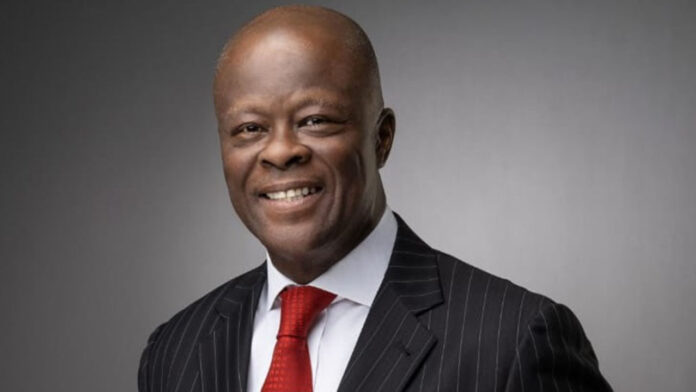•List three areas of focus to grow economy
CHIGOZIE AMADI
The federal government used part of the Nigerian Treasury Bills (NTBs) and Bonds issued in 2024 to pay down
Ways and Means advances from the Central Bank of Nigeria (CBN) by N4.83 trillion, the Minister of Finance and Coordinating Minister of the Economy, Mr. Wale Edun has disclosed.
The issue of how much the apex bank advanced to the previous administration has been controversial.
While the federal government reportedly owes the apex bank about N30 trillion under the Ways and Means advances, the actual amount is being disputed with the minister recently disclosing that the figures would be audited to authenticate the exact sum being owed.
However, while presenting a paper at the recent Lagos Business School (LBS) Breakfast Club, Edun disclosed that the federal government used part of the NTBs and Bonds issued in 2024 to pay down Ways and Means advances by N4.83 trillion.
The upper chamber had on December 30, 2023, following President Bola Ahmed Tinubu’s request, approved and confirmed the securitisation of an outstanding N7.3 trillion Ways and Means advances
In his paper presented at the LBS Breakfast Club titled, “Reconstructing the Economy for Growth, Investment and Climate Resilience Development,” the minister argued that going forward, output growth has to outstrip population growth.
According to him, as of December 2023, GDP growth was only marginally higher than population growth by less than 20 basis points (bps), depicting several years of sub-optimal growth and productivity.
Edun noted that to successfully pursue meaningful growth, the country would need to focus on three core areas to grow the economy by at least 3.5 per cent in 2024.
These include increasing oil production to 2 million barrels per day (mbpd) (including condensate), ensuring that agriculture sector growth hits 3 per cent as opposed to 2.1 per cent in 2023, and boost trade activities to support a positive current account.
He observed that to guarantee fiscal consolidation, increasing revenues is a critical driver for growth Edun said: “We have set out a robust execution plan for a 78% y-o-y increase in budgeted revenue in 2024 but implementing enhanced government’s revenue assurance model is critical. Target budget deficit of 3.9% of GDP from 6.1% in 2023.”
The coordinating minister explained that safeguarding oil revenues, increasing revenue contribution of ministries, departments and agencies (MDAs), Government Owned Enterprises (GOEs); growing non-oil revenue and optimisation of government assets were part of the fiscal consolidation measures being pursued by the government.
The finance minister also alluded to multiple medium term initiatives to boost supply of ‘sticky’ foreign capital.
These include presidential executive orders to boost the United States dollar liquidity, the presidential directives in the oil and gas sector, repatriation of foreign denominated assets into the formal financial sector, and local issuance of foreign-denominated Federal Government Bonds.
According to him, the measures expected to be implemented in early second quarter of 2024 include oil and gas companies tax incentives, exemptions and remissions, among others; local content compliance for value as well as reduction of petroleum sector contracting costs and timelines.
Noting that generating trade surpluses consistently will be accretive to growth, the minister states that Current Account Balance turned positive last year as exports improved, albeit marginally.
He pointed to plans to position the economy for strong regional trade through harmonised trade policies, enhanced financial systems and payments integration.





















